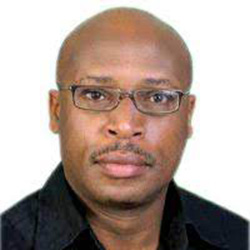I am deluded enough to think myself adept at parenthood. Yet I often fail, and am not alone. Parents everywhere strive to ensure that their kids excel, in the hope they will turn out to be responsible and successful people in their adulthood.

I am deluded enough to think myself adept at parenthood. Yet I often fail, and am not alone. Parents everywhere strive to ensure that their kids excel, in the hope they will turn out to be responsible and successful people in their adulthood.
And, depending on the parents’ moral inclination, they want their children to subscribe to their firmly held beliefs – religious or otherwise – if the children are to meet their expectations and grow up upholding a parent’s worldview.
Science has been trying to lend a hand in smoothening or untangling the often delicate process of moulding our children.
Take their schooling, for instance, especially the vexed issue of homework that many have expressed concern that it unnecessarily burdens the little ones.
Neuroscience research on brain development shows us how children learn in school, including how they learn through play, and how they learn through different stages as they grow up.
As one expert on child development observed, drawing from analysis of 180 different research studies, the impact of doing homework is "very age dependent. At high school it can help. In middle school it can help a tiny bit. In elementary school there was zero correlation between the time kids spend on homework and academic achievement.”
But this is not to confuse reading storybooks with homework. As an author who’s about to have a children’s book published, I am interested enough to understand the dynamics, especially with the realisation of the culture we must inculcate in our children to read – to drink deep of imagination in the fascinating world of books.
"That’s the beauty of books: [The kids] won’t over-imagine what they can’t handle. And it’s a time to talk about things.”
Indeed, it is about their being able to handle what they learn and nudging them on, even if the children be gifted with genius level IQs.
Another, just-released Study of Mathematically Precocious Youth (SMPY), that tracked 5,000 gifted American children over 45 years, since 1971 to date – and the longest running study of its kind in history –, found that even the highly gifted children need their teachers and parents to help them reach their full potential.
From this pool of genius children derives some of the "eminent scientists and academics, Fortune 500 CEOs and federal judges, senators and billionaires,” as psychologists will attest.
But, as one commentator pointed out, it is in the ingrained nature of education system to prioritise lifting up the lowest-performing children.
The SMPY "indicates that kids who show an early aptitude for subjects like science and math tend not to receive the help they need. Teachers who see their brightest students mastering material and getting straight ‘A’s choose instead to devote the majority of their attention to under-achieving kids,” leading some to slip through the cracks in the education system.
What about the moral upbringing of our children, specifically their altruism – famously told in the biblical parable of the Good Samaritan?
Another recent study, The Negative Association between Religiousness and Children’s Altruism across the World, suggests that "far from bolstering generosity, a religious upbringing diminishes it,” as The Economist explained it.
The world-wide study focused on behaviours of 1,170 children of various faiths – Christian, Muslim, Jewish, Buddhist, Hindu and "others” – asking them to choose stickers out of a set number to play with. They were informed that each could opt to share their own with children in their school not offered the stickers.
Results showed that Muslim and Christian children were less willing to give away their stickers. The children of non-believers were significantly more generous than those of believers.
And yet, as the study authors observed, "across all countries, parents in religious households reported that their children expressed more empathy and sensitivity for justice in everyday life than non-religious parents.”
The observation points to many parents’ counter-intuitiveness, often being the least objective when it comes to their "adorable” children.
I began with my delusions as a parent. So, what to make of all of this?
I do not categorise myself as particularly religious, but neither am I beyond emotional bubbling over my little boy and two daughters.
But science is usually pertinent, it’s at times brutally honest in its findings. It offers more than food for thought.


